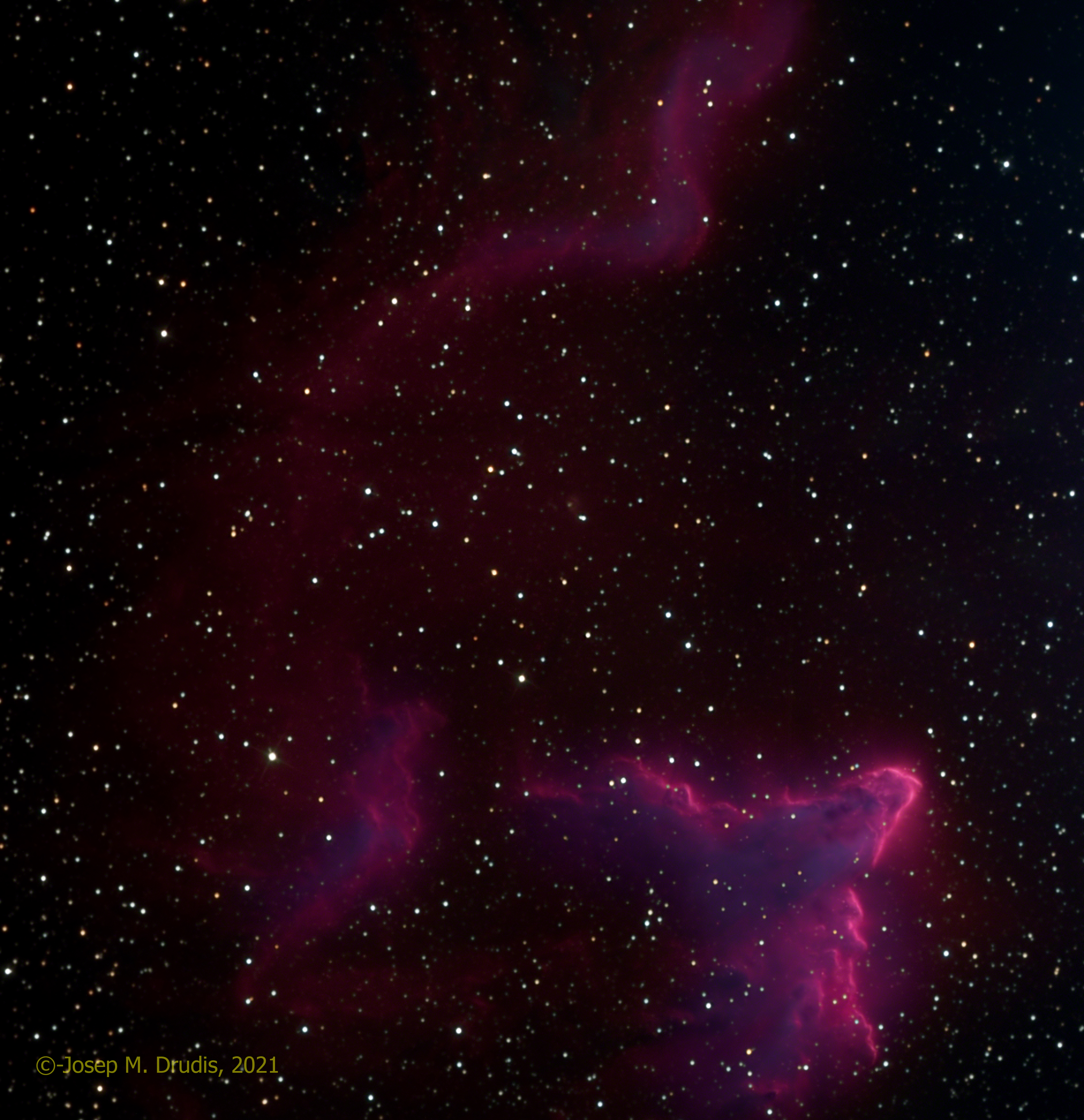Click on the image for a full resolution version
See this image also on Instagram
IC 59, the upper center “lambda”-shaped nebula and IC 63, in the lower right quarter, are nebulae located in the vicinity of the bright star γ-Cassiopeiae (a variable star mag: +1.6-3.0). The radiation from this star shapes both nebulae as well as excites their atoms, letting them shine in the classical red color of emission nebulae. The bluish tint is due to the faint reflection nebulosity that can be found just around the emission nebula. Until recently, both nebulae were thought to be located at the same distance from the bright star and the difference in brightness and structure could not be explained. In 2018, Andrews et al. found that both nebulae were farther away from the star as previously supposed and that IC 59 is nearly twice as far away from the star as IC 63, explaining its lower luminosity as well as the less carved structure.
Additional Information
Object
Name(s): IC 59 and IC 63
Type: Emission/Reflection Nebula
RA: 00h 58m 36s
Dec: +61º 02’ 21”
Constellation: Cassiopeia
Size (arcmin): 9×11 arcmin (IC 63)
Magnitude: +13.33
Distance: 750 ly (IC63) and 1400 ly (IC 59) (based on Andrews et al.)
Image
Date: 2020-11-23 to 2021-01-14
Location: Curiosity2 Observatory, New Mexico Skies, Mayhill, NM, USA
Size (arcmin): 30×30 arcmin
Telescope: 24” (61 cm) f/6.5 Reflector
Camera: FLI PL16803 (4096x4096pix)
Guiding: Astrodon MonsterMOAG off-axis guider
Total exposure: 20 hours (Ha: 10 h; OIII: 4 h; RGB: 3h [stars] B: 3h [longer exposures to grab the reflection nebula])
Processing: CCDStack, Photoshop CC 2021

